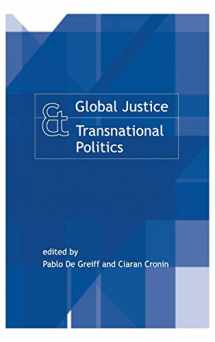
Global Justice and Transnational Politics
Book details
Summary
Description
If globalization is to be a benefit and not a burden to humankind, it must be governed by global institutions that are perceived by all people to be democratic and just. But before we can create such institutions, we must imagine them, and that requires a rethinking and extension of normative political theory. Global Justice and Transnational Politics encourages and advances that work.
The book's first part, "Weak Universalism," contains essays by Amartya Sen and Leif Wenar that offer constructive developments of John Rawls's statement of the principles a liberal polity might reasonably propose to govern its relations with other peoples. The second part, "Strong Universalism and Transnational Commitments," contains essays by Jürgen Habermas, David Luban, Martha Nussbaum, and Thomas Pogge examining the normative sources and possible types of cross-border commitments. In the third part, "Transnational Politics and National Identities," Habermas discusses the possibility of a democratic political order developing within the institutional framework of the European Union; Thomas McCarthy draws on Kant to show how cosmopolitanism might be reconciled with the legacy of nationalism; and Craig Calhoun tries to retrieve a positive aspect of the tradition of nationalism, namely that it provides large populations with a powerful way of imagining political community across space and time.


We would LOVE it if you could help us and other readers by reviewing the book
Book review



